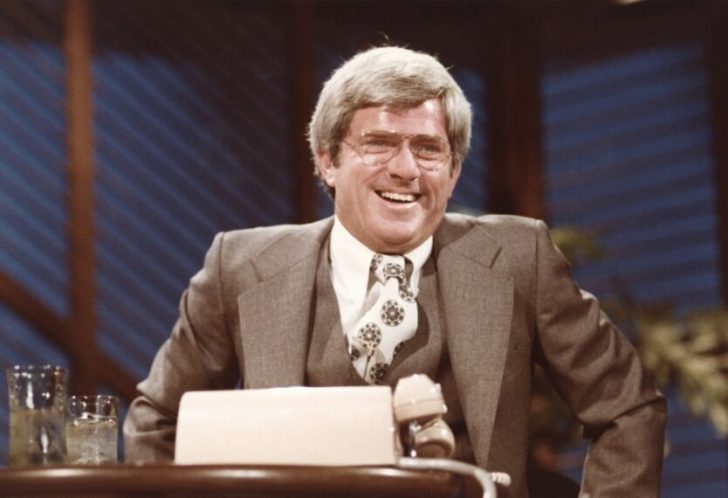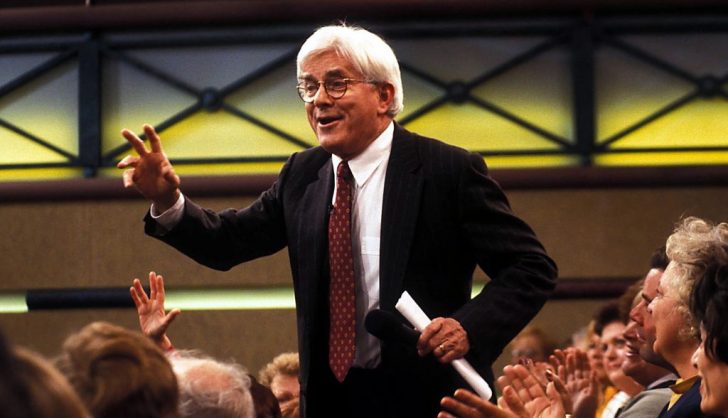Phil Donahue revolutionized television. His show, “The Phil Donahue Show,” later renamed Donahue, ran for nearly thirty years and forever changed the talk show format. He didn’t just interview guests. Rather, he invited the audience into the conversation, making history.
His fearless approach to social issues and groundbreaking format set the stage for modern talk shows.
The Birth of the Daytime Icon
Phil Donahue started in radio before making the leap to television in 1967. His talk show debuted in Dayton, Ohio, and immediately stood out. Unlike traditional interviews, Donahue let his audience engage directly, giving everyday people a voice. This interactive format was unheard of at the time.
His ability to connect with the public turned his show into a national sensation.

His mix of tough journalism and approachable charisma made the show must-watch TV. He tackled issues other hosts wouldn’t touch, from civil rights to women’s rights. Viewers trusted him because he was not afraid to ask the hard questions.
Donahue Changed Daytime Show Once and For All
Before Phil Donahue, daytime talk shows were predictable and safe. He turned the format upside down. His audience was not just watching. They were part of the discussion. With a microphone in hand, Donahue roamed through the crowd, making sure real people had their say.
This was revolutionary and paved the way for interactive television.
His influence is undeniable. Without Donahue, there would be no Oprah, no Geraldo, no Dr. Phil. He made talk shows personal, raw, and unfiltered. He turned daytime television into a powerful platform for social change.
Donahue Tackled Tough Topics Head-On
Phil Donahue never shied away from controversy. He invited guests who challenged mainstream thinking, from feminists to political radicals. At a time when TV was mostly fluff, Donahue was addressing racism, LGBTQ+ rights, and mental health. He believed television should inform, not just entertain.

When critics accused him of being too progressive, he didn’t back down. He believed in using his platform to push important conversations forward.
An Outspoken Feminist and Advocate
Phil Donahue wasn’t just a TV host. He was an advocate. He supported the feminist movement when few men in the media did. He championed women’s rights on air and off. Guests like Gloria Steinem and Betty Friedan frequently appeared, discussing gender equality long before it became mainstream.
However, his advocacy didn’t stop at feminism. He stood for free speech, civil rights, and social justice. He wasn’t afraid to call out injustice, even when it was not popular. His commitment to fairness made him one of the most respected broadcasters of his time.
The Final Years of “Donahue”
After dominating daytime TV for nearly three decades, Donahue ended in 1996. By then, the talk show landscape had changed. Sensationalism had taken over, and shock value became the new trend. Donahue’s thoughtful discussions didn’t fit the new era of TV. But his legacy was already cemented.
He made a brief return in 2002 with an MSNBC show. But it was short-lived. The political climate had shifted, and his progressive views faced pushback. Still, his influence on television remained undeniable. His format and fearless interviewing style live on in today’s talk shows.




